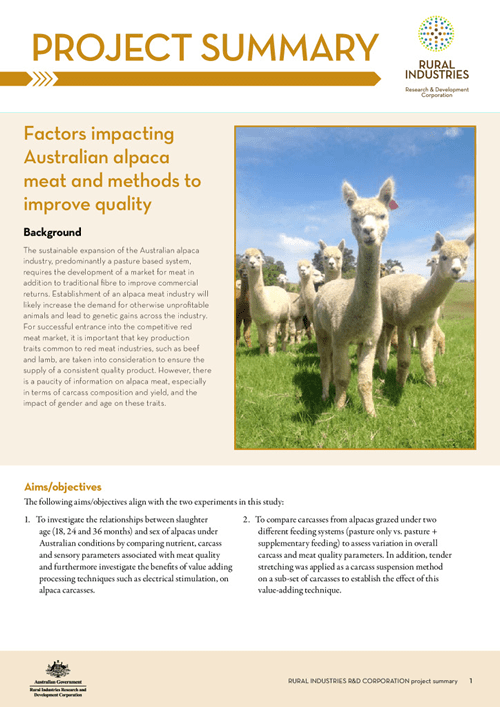The sustainable expansion of the Australian alpaca industry, predominantly a pasture based system, requires the development of a market for meat in addition to traditional fibre to improve commercial returns. Establishment of an alpaca meat industry will likely increase the demand for otherwise unprofitable animals and lead to genetic gains across the industry. For successful entrance into the competitive red meat market, it is important that key production traits common to red meat industries, such as beef and lamb, are taken into consideration to ensure the supply of a consistent quality product. However, there is a paucity of information on alpaca meat, especially in terms of carcass composition and yield, and the impact of gender and age on these traits.
Producers and processors now have information which will assist in predicting the carcass yield and meat quality traits of alpacas of differing sex (female and castrated male) at three age periods (18, 24 and 36 months). This information will be beneficial to the on-farm and processing aspects of the alpaca meat supply chain.





